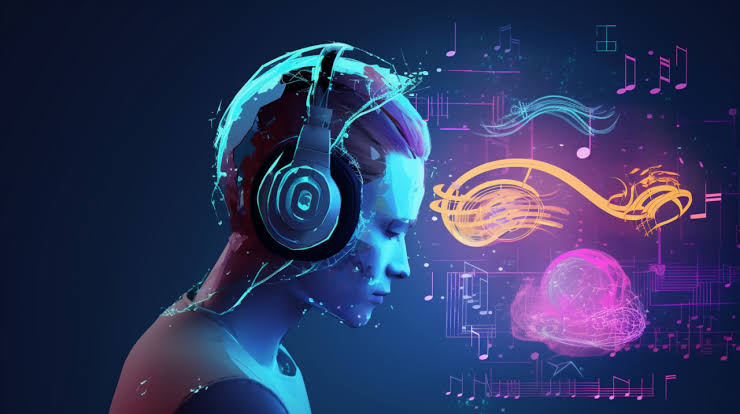Explore how AI-generated music is shaping the future of soundtrack composition, offering benefits like efficiency, personalization, and innovation while addressing challenges related to creativity, copyright, and over-reliance. Discover the potential of AI in revolutionizing music creation and its impact on various industries.
The influence of AI, on music creation is an intriguing advancement reshaping the industry. AIs role in music composition is revolutionizing how soundtracks are produced offering new opportunities for artists, filmmakers and content creators. This examination delves into the prospects of AI generated music emphasizing its benefits challenges and impact on the realm of soundtrack production.
Understanding AI-Generated Music
Music composed with intelligence utilizes algorithms to create melodies. These algorithms can analyze music databases to recognize patterns, genres and structures allowing them to generate compositions. The process heavily depends on techniques such as networks and deep learning. By being exposed to music samples AI can generate tunes that mimic various styles and genres offering a range of creative possibilities.
Potential Benefits of AI-Generated Music
One of the benefits of using AI for music creation is its ability to simplify the process. For content creators, such as filmmakers and game developers AI offers an efficient and cost effective solution for producing high quality soundtracks. Traditionally composing music can be a time consuming and expensive process requiring collaboration with skilled composers and musicians. AI tools can take on a lot of this work streamlining the process by providing options for customizable and royalty free music.
Moreover AI generated music adds a touch of personalization. AI algorithms can analyze user preferences and customize compositions accordingly resulting in soundtracks tailored to situations. For instance in video games AI can generate music that changes based on player actions enhancing the immersive experience. Similarly AI can create playlists for streaming services to ensure users receive music that matches their preferences and moods.
The utilization, of music created through AI opens up avenues, for innovation and uniqueness. In traditional songwriting the approach is often limited by established rules and standards. Conversely AI has the capability to explore territories and craft musical structures that composers may not have envisioned. This could lead to the development of new genres and styles broadening the scope of music creation.
Challenges and Considerations
While AI generated music shows potential it also comes with challenges and considerations. One major concern is the aspect of creativity and uniqueness. While AI can compose music by using patterns it may struggle to capture the depth and personal touch that human composers bring to their work. Music is not about patterns and structures; it involves conveying emotions, experiences and cultural nuances. Detractors argue that AI created music may have difficulty truly reflecting the essence of human creativity and expression.
Another obstacle revolves around issues of copyright and intellectual property. Since AI systems generate music based on existing compositions determining ownership and authorship can be complex. If an AI program produces a piece that closely resembles a work questions may arise regarding copyright infringement and originality. Legal frameworks and industry standards will need to evolve to address these challenges and ensure practices.
Additionally depending on AI, for creating music presents a dilemma. While AI can offer assistance and tools it should not overshadow the ingenuity and skill of composers. Finding a balance, between utilizing AI for efficiency and preserving the element in creativity is crucial. Musicians and composers should view AI as a tool rather than a substitute for their own talents and artistic vision.
The Future of AI-Generated Music
Looking into the future AI generated music holds a realm of possibilities. With advancements in intelligence and machine learning we can anticipate more complex and sophisticated compositions. AI algorithms might enhance their capability to comprehend and replicate emotions resulting in soundtracks that are more moving and captivating.
Additionally collaborations between AI and composers are likely to become commonplace. By merging their strengths creators can leverage AI to handle tasks explore new creative pathways while still maintaining the emotional richness and distinctiveness that musicians bring. This collaborative approach has the potential to produce compositions that push the boundaries of music.
Furthermore the application of AI generated music across industries is expected to expand. Beyond movies and video games we may witness AI soundtracks being utilized in advertising, virtual reality and even tailored entertainment experiences. As technology advances AI generated music could play a role, in shaping our perception and interaction with sound.
In conclusion AI's influence, on soundtrack creation shows promise. It offers benefits such as efficiency, personalization and innovation. However it also raises questions about originality, copyright challenges and over reliance. As technology advances finding a balance between leveraging AI's capabilities and preserving the artistry in music composition will be essential for shaping the future.
